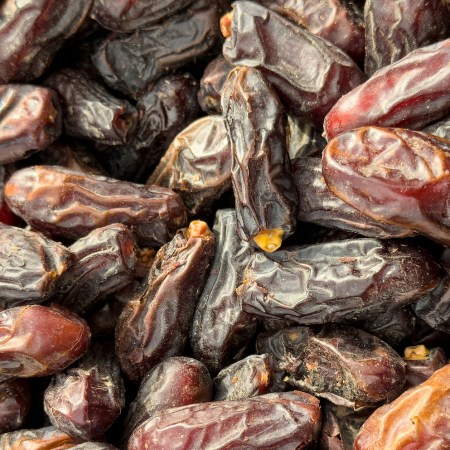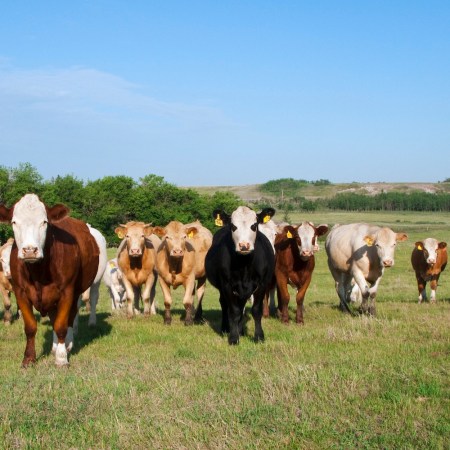Eating healthy is always a good idea in theory, but in my day-to-day life I tend to struggle with implementing a consistent meal plan. My twenties were full of crash diets I could never stick to; as I get older, the challenge is maintaining the motivation to eat healthy when I don’t have a concrete goal to track.
Personally, I need new motivations to eat vegetables. One that’s stuck with me? Living a long life on a planet that is not a total trash fire. That’s why the Planetary Health Diet (PHD) jumped out at me. It teaches people to eat in a way that supports both their own health and the well-being of the world around them. Plus, the acronym makes me feel a little bit smarter — I’m on the PHD diet — which is a fun bonus.
According to Walter Willett, a professor of epidemiology and nutrition at the Harvard T.H. Chan School of Public Health, the point of the PHD was to design a way of eating that could adequately feed the world’s growing population, which is expected to reach nearly 10 billion people by 2050. “We started this process by identifying a healthy diet and evaluating whether this could be sustainable,” Willett told me.
To do this, Willett and his team consulted a 2019 report from the EAT-Lancet Commission, in which a team of 37 scientists from 16 countries developed the “first ever scientific targets for a healthy diet and sustainable food production within planetary boundaries.” Experts organized a diet consisting of half fruits, vegetables and nuts, followed by whole grains, plant-sourced protein (like legumes) and small slices of foods like dairy and animal protein. Based on their calculations, the diet could contribute to a huge reduction in greenhouse gas emissions and prevent 11 million premature deaths annually.
Willett and his colleagues tested this meal plan in a new study, which uses health data from over 200,000 men and women enrolled in the Nurses’ Health Study I and II and the Health Professionals Follow-Up Study. These datasets allowed researchers to score participants’ diets based on how much they ate whole grains, vegetables, poultry, nuts and other food groups included in the PHD.
Results revealed that risk of premature death was 30% lower among the top 10% of participants who ate closest to the Planetary Health Diet. On top of that, every major cause of death, including cancer and heart disease, was lower when people stuck to the meal plan. They also found that adherence to the PHD significantly reduced greenhouse gas emissions and cropland use (contributing to more greenhouse gas emissions) by 29 and 51%, respectively.
Attempting the planetary health diet myself for three weeks was easier than following a more restrictive diet, like Whole30; it was more on par with the Mediterranean Diet. It seemed doable from the outset, given that the menu includes many foods I enjoy eating, and I could consume things like cheese and natural sugar from fruit without bending any rules.
“The diet allows great flexibility and can be delicious with great variety,” Willett points out.
Despite the PHD feeling like a common sense way to reconsider our diets, there is cultural and governmental resistance to including the environment as a factor in food recommendations. Despite how closely linked personal and planetary health are, the U.S. Department of Agriculture has “refused to even consider the environmental implications of their dietary recommendations,” according to Willett. In fact, in 2015, the USDA publicly refused to incorporate sustainability suggestions into its federal dietary guidelines.
This resistance is disappointing for someone like me, who would benefit from seeing the environmental impact of my food choices laid out clearly for me. It might be the thing that helps me choose between a cheeseburger and a grain bowl, two options I thoroughly enjoy.
Willett suspects that people could make conscious diet choices consistently if they knew more about the carbon footprint of their carbonara. “People vary widely in what is most important to them, but for some, personal health is most important, and for others, this could be environment,” Willett says. “Fortunately, either of these would be supported by the PHD.”
The biggest difference between the PHD and other diets I’ve tried is that I cannot even jokingly say that I tried it “so you don’t have to.” The whole point of the diet is that millions of people have to adopt its suggestions for it to have a positive impact on the planet. But considering the many personal health benefits it stands to offer, maybe the better pitch for the PHD is not that it could save the planet, but that it could save you.
The Charge will help you move better, think clearer and stay in the game longer. Subscribe to our wellness newsletter today.



















